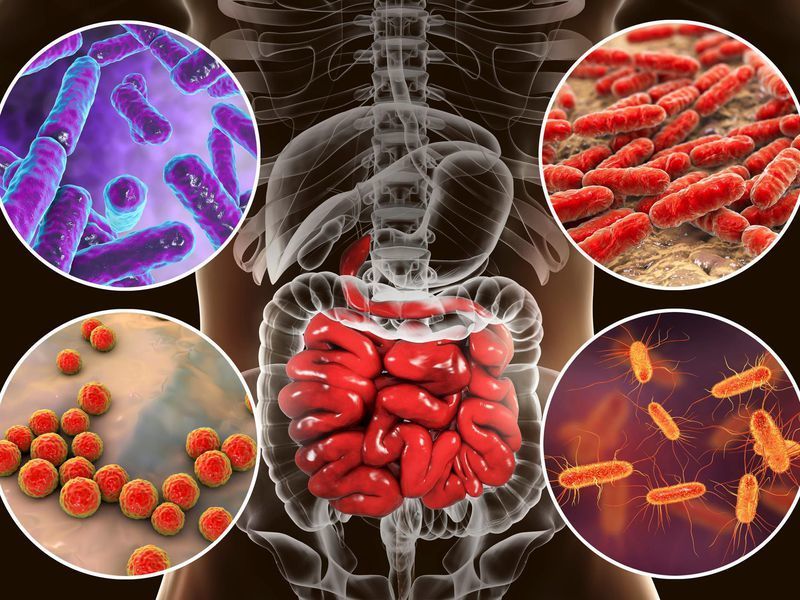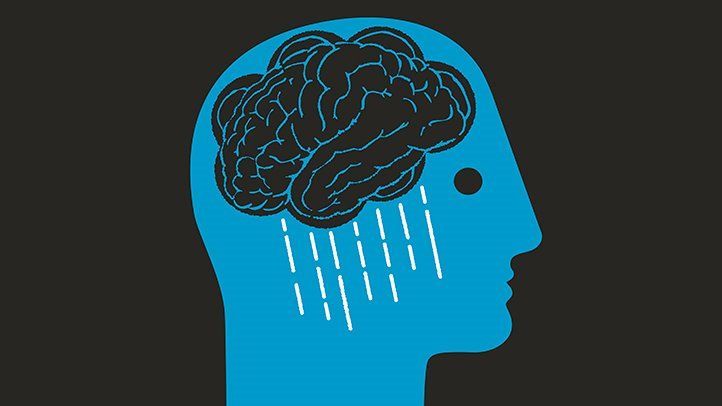How can gastrointestinal bacteria or intestinal bacteria cause depression? - Some bacteria that inhabit the human intestine may cause depression, according to the results of a study that added evidence of previously reported theories.
This was demonstrated by a study of more than 2,000 adults with depression. It was observed that they had differences in specific groups of intestinal bacteria or intestinal bacteria. It was also found that people with a greater amount of intestinal bacteria had better mental health.
The study, published on the Internet on February 4 in the journal Nature Microbiology, is the last of its kind to reveal the relationship between human health and intestinal microbes. The term refers to trillions of bacteria and other microorganisms living within our intestines.
These microbes are thought to perform far more than just helping digestion. Studies indicate that they are part of every process that occurs within the body, from immune system defenses to the production of vitamins, anti-inflammatory compounds and even chemicals that affect the brain.
These microbes are thought to perform far more than just helping digestion. Studies indicate that they are part of every process that occurs within the body, from immune system defenses to the production of vitamins, anti-inflammatory compounds and even chemicals that affect the brain.

"Most studies on the link between the gut and the brain have been done in animals," said lead study author Geron Rice. His team studied the relationship between intestinal microbes or intestinal germs and depression on more than 2,000 adults in two healthy studies. The researchers found that the levels of the two specific groups of Coprococcus and Dialister were consistently depleted in people with depression, while those with high levels Of Coprococcus and another group of bacteria also called Faecalibacterium usually live their lives better.
Both types of bacteria spread in dietary fibers to produce an anti-inflammatory compound called butyrate; but nothing proves that these bacteria contribute in some way or protect against depression, said the professor at the University of Leuven, Belgium. "We now have strong human data that point to microorganisms that could get us new drugs and equipment after all those studies in mice," Rice said. Also says Professor of the University of California d. Imran Meyer said his recent findings add a strong link between the intestine and human mental health to evidence, but also as Rice said: "They have not yet established any intestinal bacteria cause depression." "People who are depressed already have different diets and habits than those who do not, which in turn can affect intestinal microbes," Meyer said.
Dr. Meyer doubts whether there is a correlation between microbes and depression. Changes in the structure of intestinal microbes can occur in people with depression, which in turn may promote symptoms of depression.
"We need more studies to see if there is actually a vicious circle or not, but we do not know yet," Dr. Rice said.

Many studies have revealed a large proportion of animals from the strong relationship between the structure of intestinal microbes and the risk of various health conditions such as: mental disorders (such as dementia), obesity, autoimmune diseases (such as type I diabetes), rheumatoid arthritis, but what The position of the relationship between intestinal bacteria and the occurrence of human diseases remains unclear.
Even if the intestinal microbes affect the incidence of depression, d. Meyer doubts whether medical drugs will be a quick fix; the microbes and depression are too complicated. He also said that intestinal bacteria produce the same products as the destruction, and explains that studies should pay attention to those intestinal microbes that help to exacerbate the disease.
Dr. Meyer followed his belief that there was an effective treatment aimed at upsetting the balance of intestinal microbes, rather than adding a bacterial strain or two; he also explained that diet change could do so.
In this study, there were hints that bacteria producing anti-inflammatory Butyrate were useful, Meyer said these bacteria make butter when they analyze different fibers of plant foods. "I would like to say that a diet should be highly plant dependent and very varied in plant foods," he says. "That means that if you eat tomatoes, for example, that's not enough.
Not only for the production of anti-inflammatory, but the diversity of intestinal bacteria or intestinal bacteria is what matters, the greater the diversity of the microbe was better. The diet, which contains a few processed foods rich in plant foods such as vegetables, fruit, nuts and grains, provides the desired diversity of intestinal bacteria, Meyer.
Source : webmd








0 Comments